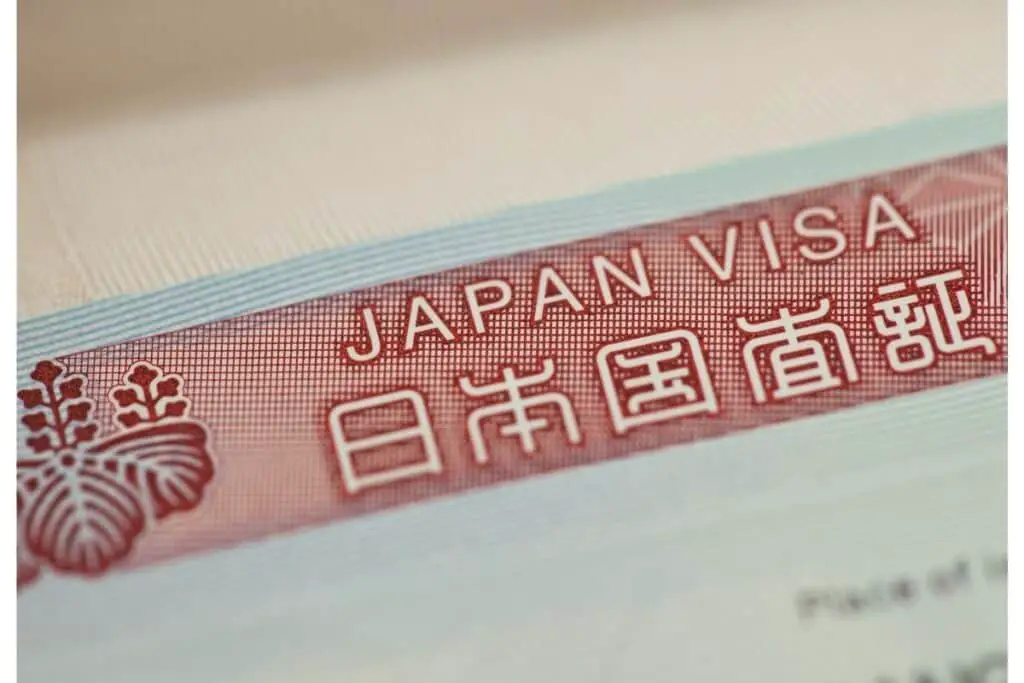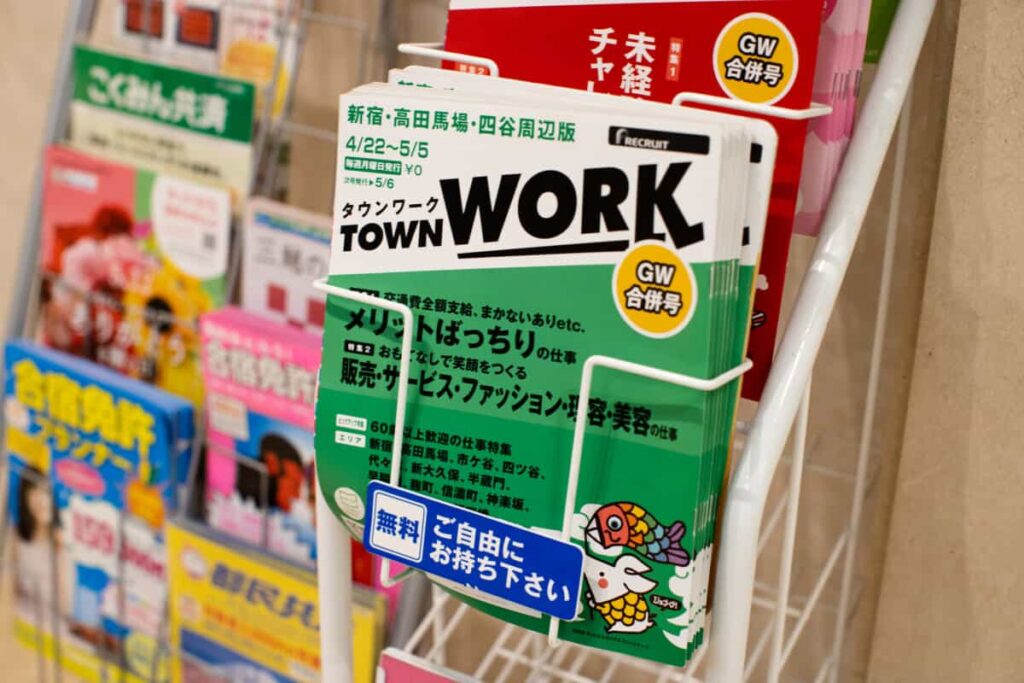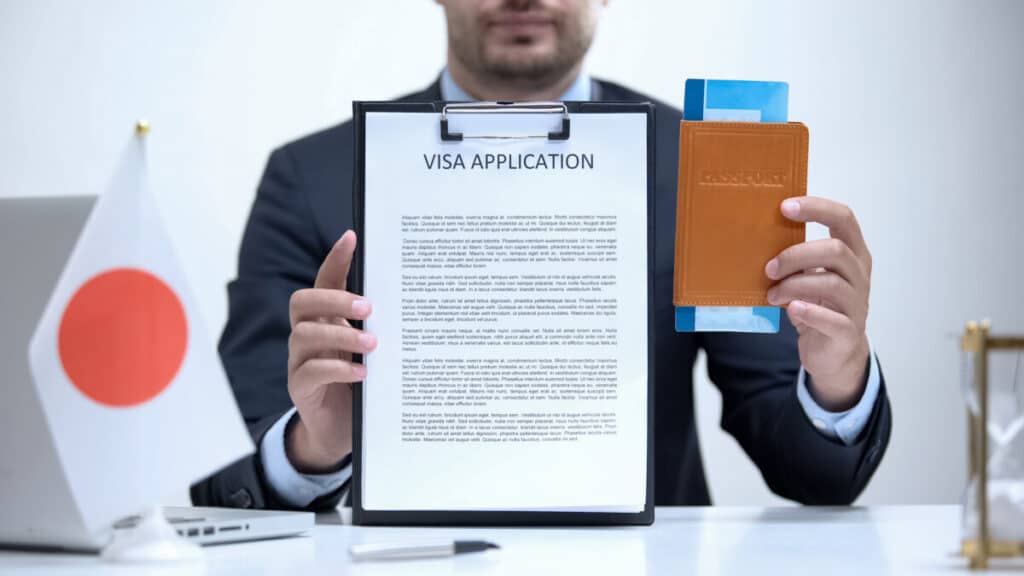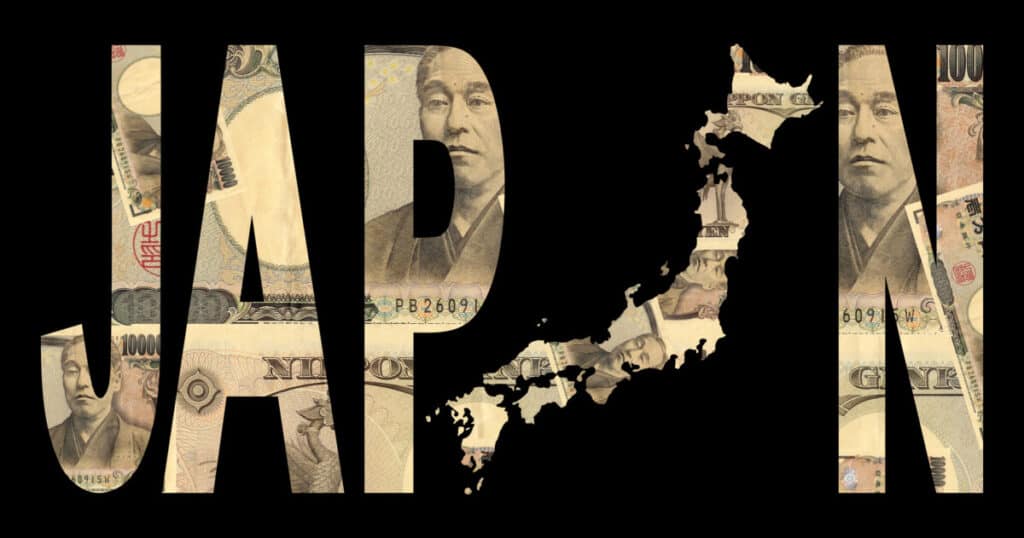If you are looking to get a work permit or work visa in Japan then you will need to make sure that not only do you meet all of the necessary criteria but that you also have all of the required paperwork.
If you are looking to enter Japan on a work visa (or work permit) then you should know that there are many different types of permits to choose from and it is important that you apply for the correct one for your particular situation.
General information about Japanese visas
Typically, your visa or permit will be determined based on your line of work. There are visa categories for artistic occupations, researchers, construction workers, etc.
Altogether there are around thirty different types of work permits available to ex-pats in Japan. These include both as an employee of a company and as self-employed.

One of the main documents that you will need in order to apply for a work permit in Japan is a CoE (Certificate of Eligibility).
This certificate states that the applicant is able to come to Japan legally regardless of the reason. You will need to have this certificate before arriving in Japan and before beginning your visa process.
How much do the visas cost?
The exact price of a work visa in Japan will depend on the type of visa that you are applying for. If you have opted for a multi-entry visa then the price for this will also differ from a single-entry visa.
What do I need to apply for a work visa?
Japan offers work visas based on merit and for the vast majority of work permits you will need to hold a university degree in order to be considered, as well as have a CoE.
In some lines of work, you may also be required to submit a portfolio or examples of your work in order to be considered on your skill and merit.
If you are looking to apply for a visa for permanent residency in Japan then you should also note that this is awarded according to a point system where academic achievements, work portfolios, and experience all factor in your favor.

What are the different types of work permits?
There are currently approximately 30 different fields for which you can apply for a work permit in Japan.
Some of the types of work permits include occupations such as technical intern training, skilled laborer, researcher, religious activities, professor, nursing care, medical practitioner, legal and or accounting services, journalist, transfer within a company, instructor, entertainer, engineer, international services, business manager or artist.
Please note that your occupation may fall under one of these broader categories.
The different permits will each have varying lengths of stay and will be determined according to your needs and personal circumstances. However, note that work permits are only valid for an absolute maximum of 5 years.

What is the specified skills visa?
In addition to the types of visas laid out above, Japan has also introduced the “specified skills visa”. The idea behind introducing this visa was to encourage foreigners to move to Japan in order to cover sectors that are currently understaffed.
By 2025 the Japanese government is hoping to have given out 500,000 visas of this kind.
There are two different versions of this visa: Specified Skills Visa 1-SSV1 and Specified Skills Visa 2-SSV2.
Specified Skills Visa 1-SSV1
In order to be an applicant for this visa, you will need to prove your proficiency in Japanese as well as past technical exams. In some fields, your level of Japanese may need to be N4.
You may apply for this visa if you work in the following sectors: fishing, vehicle maintenance, construction, cleaning, electronics, machinery, industrial machinery, hotels, food and beverage, airport ground handling, plane maintenance, restaurants, shipbuilding, nursing, and care, materials processing, agriculture.
This type of visa is only valid for one year but it may be renewed up to a total of five years. This is an individual-only visa and families are not permitted to enter Japan under it.

Specified Skills Visa 2-SSV2
This version of the Specified Skills Visa offers the applicant a lot more freedoms in that the visa can be renewed indefinitely and the applicant’s family may join them in Japan.
If you currently hold the Specified Skills Visa 1-SSV1 visa then you may apply for this version once your skills have improved and you are highly qualified and specialized.
Please note that the exact requirements for this type of visa will vary from case to case. However, for most applicants, you will need to ensure that you have the following: an employment offer from a Japanese company, passport, application form for the visa, a photograph, and a CoE.
In some cases, you may also need to apply with your CV and degree certificates.

What is the CoE?
The Certificate of Eligibility proves that you are legally allowed to enter Japan, and are therefore eligible to apply for a visa.
This document is sorted via the Immigration Services Agency of Japan. You have the option of submitting this document either online via email or in person at a Japanese embassy.
In order to apply for the Certificate of Eligibility, you will need to complete the CoE applicant form, a passport photo, and a pre-addressed and stamped envelope.

In some cases, you will also need to apply with further documents. For example, in the instance that you are a researcher you will also need to include the recipient organization’s outline, your degree certificate, your CV, any other documents relating to your profession, as well as any documents that state the type of research, length, and general process.
In the case that you are an engineer, you will need to also include your company’s registration, a statement of the company’s losses and profits, documents of the business substance, relevant degree certificate, any documents relating to your career, as well as any documents that state the type of work, length, and general process.
What do I need for a self-employment visa?
If you are looking to apply for a work permit in Japan but are self-employed then you will need to apply for what is called an investors visa, or a business visa.
Please note that obtaining this type of visa can be a difficult process, although it does offer more freedoms than employee-styled visas.
There is no self-employment visa for those wishing to move to Japan. In order to receive the relevant visa, you will need to establish your business. Many people instead choose to move to Japan as an employee before becoming settled, setting up their business, and then applying for the appropriate visa.
You do not need to be a full-time employee in order to do this, you can also work as a contractor for a company. This will then give you enough time to set up your business and apply for an investor’s visa.
In order to apply for an investors visa you will need the following: proof of a $4600 investment, a solid business plan, proof of company registration, a statement of the company’s losses and profits, documents detailing the number of staff who work for the company full-time (this needs to be a minimum of two including yourself), resident cards of all staff members, proof of payroll, proof of an office, receipts of resident and income tax.

You can also apply for an investor’s visa under an established company. The company will need to have existed for a minimum of three years before you are able to do this.
In order to apply this way you will need the following documents: proof of wages over $2300 per year, bank statements, invoices from clients, signed contracts, receipts of income tax, office address.
The higher your wages the better your chance of receiving this type of visa.
How much does a self-employment visa cost?
The exact price of a self-employment visa (business visa or investors visa) will vary from case to case. The price can range between $30 and $60 and will also depend on the type of visa in terms of a multi or single entry.
Remember to include all necessary documents to give your application the best chance of succeeding.










